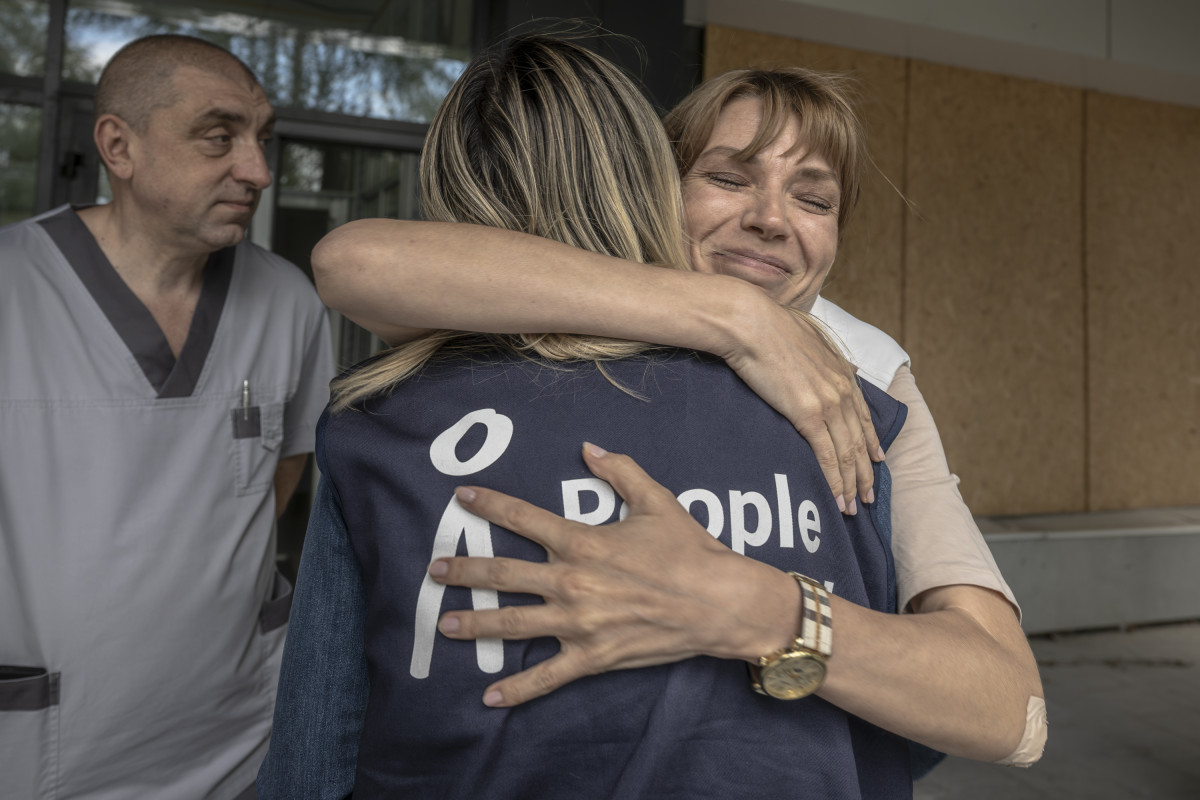Helping people, saving lives in Ukraine
Published: Oct 21, 2025 Reading time: 3 minutes Share: Share an articleAs Russian shelling o f densely populated areas continues, civilian casualties are rising, and critical infrastructure-especially in frontline regions —is being destroyed. As a result, the humanitarian needs in Ukraine are growing. In recent months, intensified violence has caused a new wave of displacement, particularly in the Sumy, Donetsk, Kharkiv, and Dnipropetrovsk oblasts.

When the Korabel neighbourhood in Kherson was cut off by the destruction of a bridge, we quickly mobilised to support evacuees. Meanwhile, in Pavlohrad, our colleagues worked incessantly - even through weekends-to register displaced residents and provide them with financial assistance for food, medicine, and transport to safer places.
With renewed attacks on energy infrastructure, the impending winter is expected to be extremely difficult. People in Need Ukraine is one o f the country's largest providers of winterisation support. This winter, w e are ready t o distribute fuel briquettes to 2,702 households and provide winter cash assistance to 15,638 families. Work is already underway so that people receive support before the cold sets in. At the same time, we are leading one of the largest district heating initiatives in the humanitarian sector, with 20 planned projects to repair and prepare centralised heating systems that will provide warmth to an estimated 90,000 people.
Beyond emergency response, we have been investing in education, resilience, and recovery. This summer, we finalised an assessment on inclusion and social cohesion in schools, which will guide future priorities. We closed the school year by completing catch-up programmes, and handing over temporary learning spaces (TLSs). In the coming months, 25 schools across five frontline oblasts will receive support with catch-up classes, psychosocial activities, shelter repairs, and TLSs. To ensure quality, in August we held refresher training for our trainers, who will now prepare about 150 teachers for the academic year.
We also provide psychosocial support across Ukraine, including support groups for displaced people and the elderly. These meetings help people overcome crises, feel the support of the community, and find the strength to cope with difficult emotions. We also continued to operate our Psychosocial Support hotline 24/7, at a time when many other hotlines were forced to close. At the same time, we continue to support Ukraine's long-term recovery. We provided grants to young people for community initiatives, while veterans received support to start or expand their businesses. In Kyiv, we co-hosted an important event on social housing for internally displaced people, and in Brussels, we brought together key stakeholders to discuss strengthening Ukraine's water and heating systems. Our colleagues also represented People in Need at several international events, raising awareness of our work and building new partnerships. Despite shrinking funding and ongoing hostilities, we remain committed to protecting people's dignity and supporting the most vulnerable wherever they are.
The Zvyagintsev family, raising two children, have twice experienced the destruction o f their home. The first time was in Donetsk Oblast. After the full-scale invasion, they fled to Sumy, where they finally found refuge. The children had their own rooms at last. But just as they began to settle in, another rocket strike destroyed everything again.
We provided the family with financial assistance to repair their home. This support helped rebuild the house but and restore a sense of normal life. The children have returned to school and now dream of spending next summer at camp - without war.
Pavlohrad regularly suffers from drone and missile strikes. To keep people warm in winter, we modernised the city's most important boiler houses and installed new equipment. This has ensured stable boiler operations, improved efficiency, and reduced both delivery time and carbon emissions. Following the modernisation o f ten boiler houses, around 31,000 residents will benefit from a reliable and efficient heat supply.
Ten-year-old Albina has developmental challenges that for a long time made her feel insecure and afraid to communicate with her peers. She expressed her inner world through drawings-most often of cats. Our psychologists used this as a starting point to begin working with her. Through art therapy, Albina gradually started to speak. For her, this is a huge victory. Today, she talks with other children and is no longer shy about making new friends in person, not just online. Ahead of her is an operation that will help her speak even more clearly.

